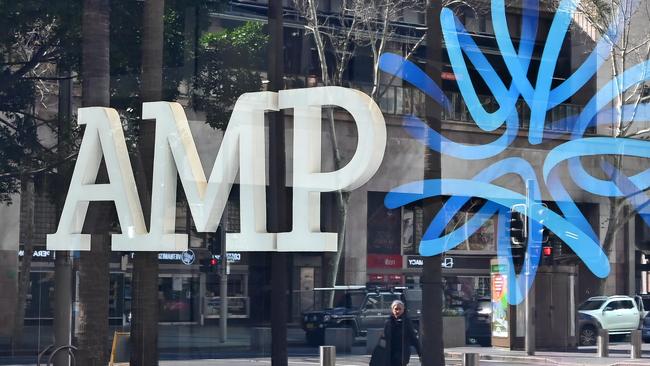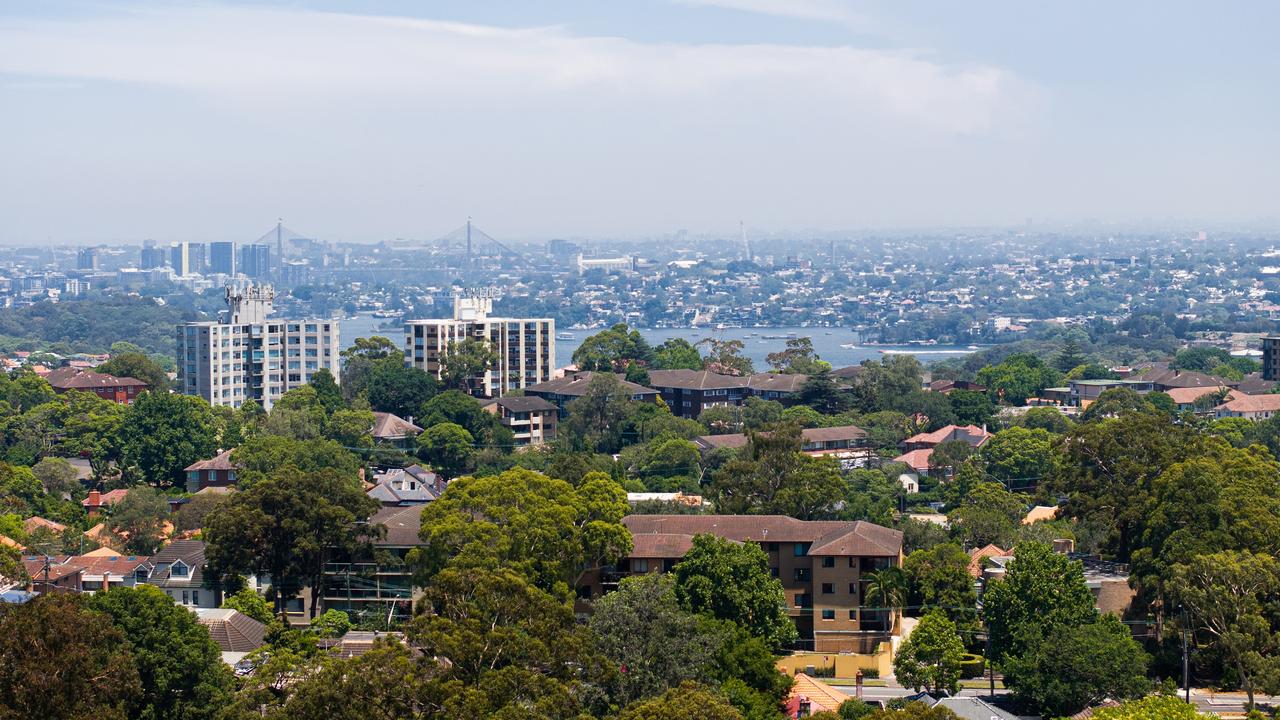AMP demerger on the brink, piecemeal sell off on the cards
The move marks a shift away from the original plans that would have left its funds unit, now rebranded as Collimate Capital, with about $44bn under management.

AMP is moving away from a spin-off of its marquee private markets unit with talks advancing to offload the bulk of the local real estate operations to investment house Dexus, and its offshore infrastructure unit to Apollo Global Management or DigitalBridge Group.
The move marks a shift away from AMP’s original plans for a demerger that would have left its funds unit, now rebranded as Collimate Capital, with about $44bn in assets under management.
But ongoing instability across the platform and the piecemeal selldown of the AMP Capital business has led the financial services giant to lean towards a break-up as the best option. Plans to spin off Collimate Capital have been complicated by rocky equity markets and negative sentiment against funds management businesses.
The platform has also been upset by multiple approaches for the business and staff departures, which have contributed to instability and sparked concern among some investors.
AMP’s real estate business manages $23.3bn and its infrastructure equity arm oversees $18.8bn in invested assets and a further $1.1bn in undrawn commitments.
READ MORE: AMP sells $7bn debt business to Ares | AMP demerger on track for June 2022 | AMP staff press for demerger revisions
Both AMP and Dexus declined to comment. The property group is believed to be in prime position after a series of earlier bidders fell away, and Dexus could pay a price equating to several hundred million dollars for the local property and infrastructure business with adjustments depending on which funds transition.
Major investors that have been canvassed by the prospective manager have met the proposal with positive feedback after a prolonged period of uncertainty.
The AMP infrastructure team, led by Michael Bessell and Michael Cummings, is slated to join the Dexus operation, backed by its own governance arrangements.
The AMP team is understood to have made commitments to the prospective manager and the infrastructure funds are well regarded and have not been hit as hard by executive changes that hampered the property unit.
On the international side, DigitalBridge and Apollo are the final bidders vying for AMP’s global infrastructure equity division. That will also reach a conclusion in coming weeks.
That comes against the backdrop of a spin-off of the infrastructure and real estate units on the ASX as Collimate Capital becoming increasingly unlikely, although this is yet to be ruled out by the company’s board.
DigitalBridge manages more than $US45bn ($61bn) and invests across data centres, mobile phone towers, fibre networks, small cells, and edge infrastructure. It is up against larger rival Apollo, which has about $US498bn of assets under management.
Last year, a unit of Apollo amassed an 18 per cent stake in ASX-listed Challenger as it sought a foothold in Australia’s retirement and annuities sector.
DigitalBridge last year poached AMP’s Matthew Evans to become the firm’s head of Europe.
AMP’s demerger plans have been marred by uncertainty. The surprise sale of AMP’s infrastructure debt unit to Ares Management on Christmas Eve sparked doubts about whether it would go ahead.
AMP also sold its global equities and fixed income business to Macquarie Group, in a transaction that was completed last month.
In a notice of annual general meeting, released this week, AMP said an agenda item for a share consolidation related to the demerger would not be considered at the May AGM as previously flagged. AMP said further information on the share consolidation would be included in documents on the demerger ahead of June.
When delivering the company’s results in February, AMP chief executive Alexis George said she was focused on getting the demerger of Collimate Capital over the line even as suitors looked to court the business. She kept the door open for a potential sale at the time, declaring the wealth manager would consider “any valid offers” that came its way.
AMP fell to a full-year loss of $252m as a result of impairment charges, transformation costs and remediation expenses and said at the time that it was getting offers from various parties but was still working towards a demerger.
If Collimate Capital was spun off and listed on the ASX as planned, AMP had intended to retain up to 20 per cent of the business to boost its balance sheet and financial flexibility.
The uncertainties about which path AMP would take has unsettled key wholesale investors, who believe they should have a say over who manages their funds, and the buyers of the business face the tough task of keeping them onside.
Dexus is likely to present itself as the best alternative with deep experience as a manager of real assets. It has three decades in property funds and has built up a $27bn third-party funds empire and would seek to house the local infrastructure business by drawing on the complementary nature of its skills and major superannuation fund investors.
The final deal hinges on pricing the management rights and satisfying the underlying investors to ensure they will switch to Dexus, despite their dissatisfaction with AMP.
Dexus could claim support as it is free of AMP’s legacy of corporate governance woes and will be billed as having the capacity to stabilise the platform and turn it around. It has already managed a merger with its own wholesale diversified fund with another fund previously run by AMP.
A break-up of Collimate Capital comes as AMP also weighs the difficulty of valuing the business in a demerger with the risk of a share collapse if major investors deserted the platform, which could prompt shareholder class actions.
AMP is also pushing towards a sale as a means of deriving some value from the management rights of Collimate Capital funds rather than letting them seep away if its fundraising efforts stall.
AMP has fielded extensive interest in the business and dealt with groups including Asian logistics house ESR, which last month said it was not interested, and local funds manager HomeCo.
But talks with Dexus were now well advanced, sources said, and could be tied up as early as next week. The pricing on any transaction is also likely to reflect its success to keep key vehicles under its management.
This could crimp the final price for the once blue-chip AMP platform, but the company will at least receive some value.
Shareholders want an end to the uncertainty about the demerger and are hopeful that some value can be salvaged by AMP after it was rocked last year by Ares Management walking away from a $6bn bid for the whole company.
“I don’t mind there not being a demerger but then they should just sell the whole thing and give the proceeds to shareholders through a special dividend … As long as they get a good price,” Allan Gray portfolio manager Simon Mawhinney said.
“AMP have a habit of selling a lot of bits and pieces and shareholders end up with nothing,” he added, noting the divestment of infrastructure debt to Ares and the global equities and fixed income arm to Macquarie Group.
“We are very open to them selling stuff but we’d like some of the money back. No money has come our way.”
Australian Eagle Asset Management portfolio manager Alan Kwan said the key was the value attained. “It all depends on the price (AMP secures for the assets). The more parts you dispose of it makes what you are demerging smaller and less relevant. Typically demergers have done OK in the aftermarket if you are patient,” he said, citing the examples of Coles, Endeavour and South32.
He also said his preference – if the demerger was dumped – would be for AMP to sell Collimate Capital in one line, which reduced the risk of stranded assets.
For Dexus, a transaction would transform its ambitions in funds management and would vault it to becoming one of the country’s premiere players in real assets. In property, it would gain control of both a $7.5bn office fund and a shopping centre fund that has stakes in some of the nation’s top malls. It would also gain a valuable property mandates business.
Some property investors may hold concerns about the concentration of so many funds under the Dexus platform. Property rival Mirvac is likely to challenge its grip on the office fund after it and GPT were short-listed against AMP as the favoured candidates to run the fund in a process run last year. But Dexus will be putting forward its bona fides as one of the top office managers in the country to keep that fund and it also has deep retail experience even though shopping centres hold their own challenges.
But for AMP, a certain exit could be better than facing the unknowns thrown up by a spin-off and provide a means of quelling investor disquiet.
While AMP shareholders may not be getting the lucrative exit from their famed funds operation, or even reaping a hefty premium for the management rights to the crown jewels in its property business, the break-up could be the best option still on the table.


